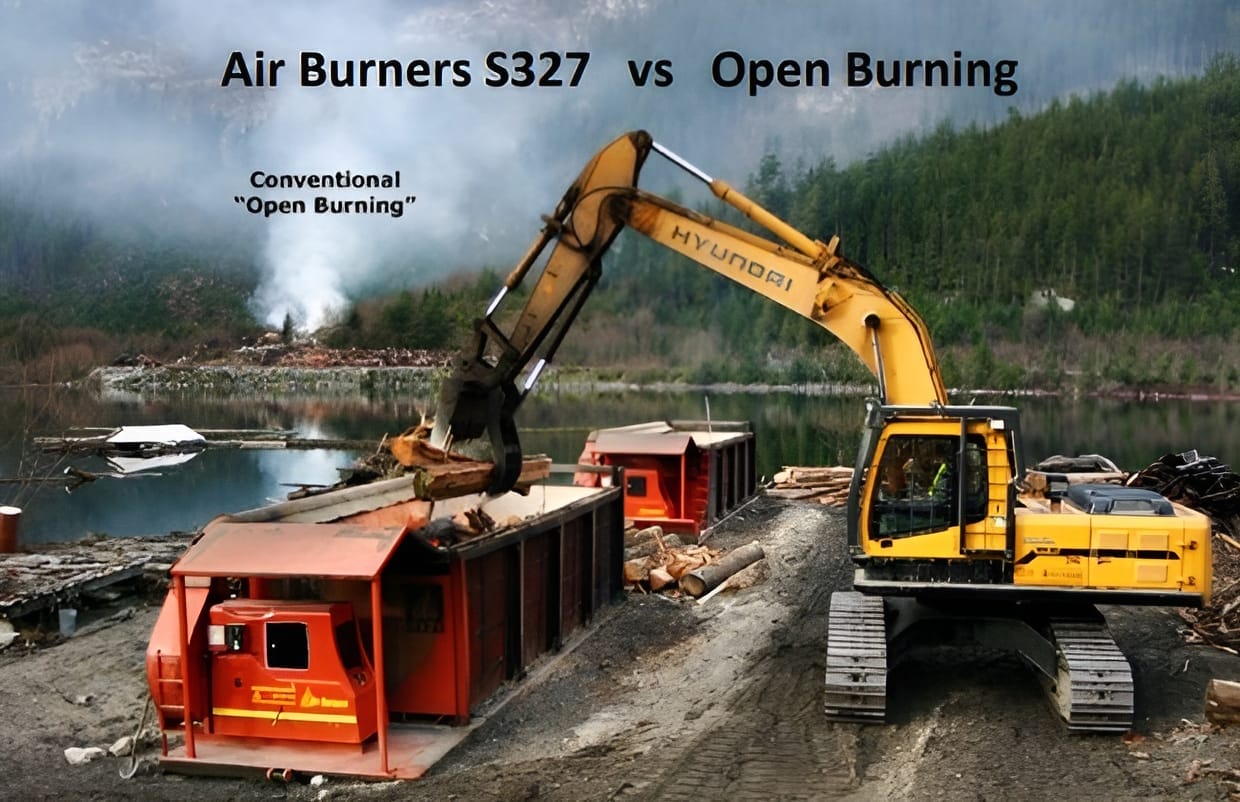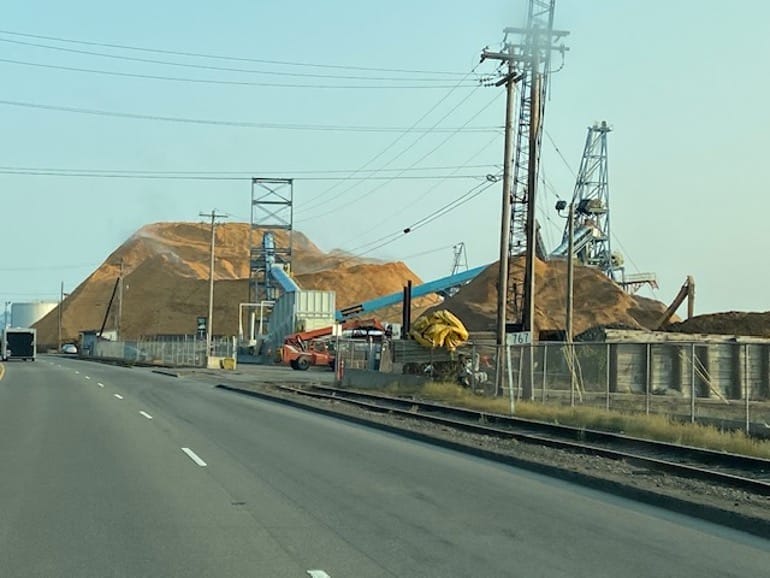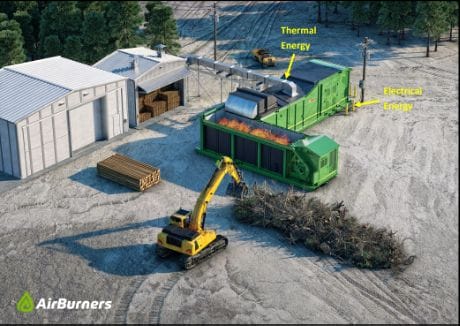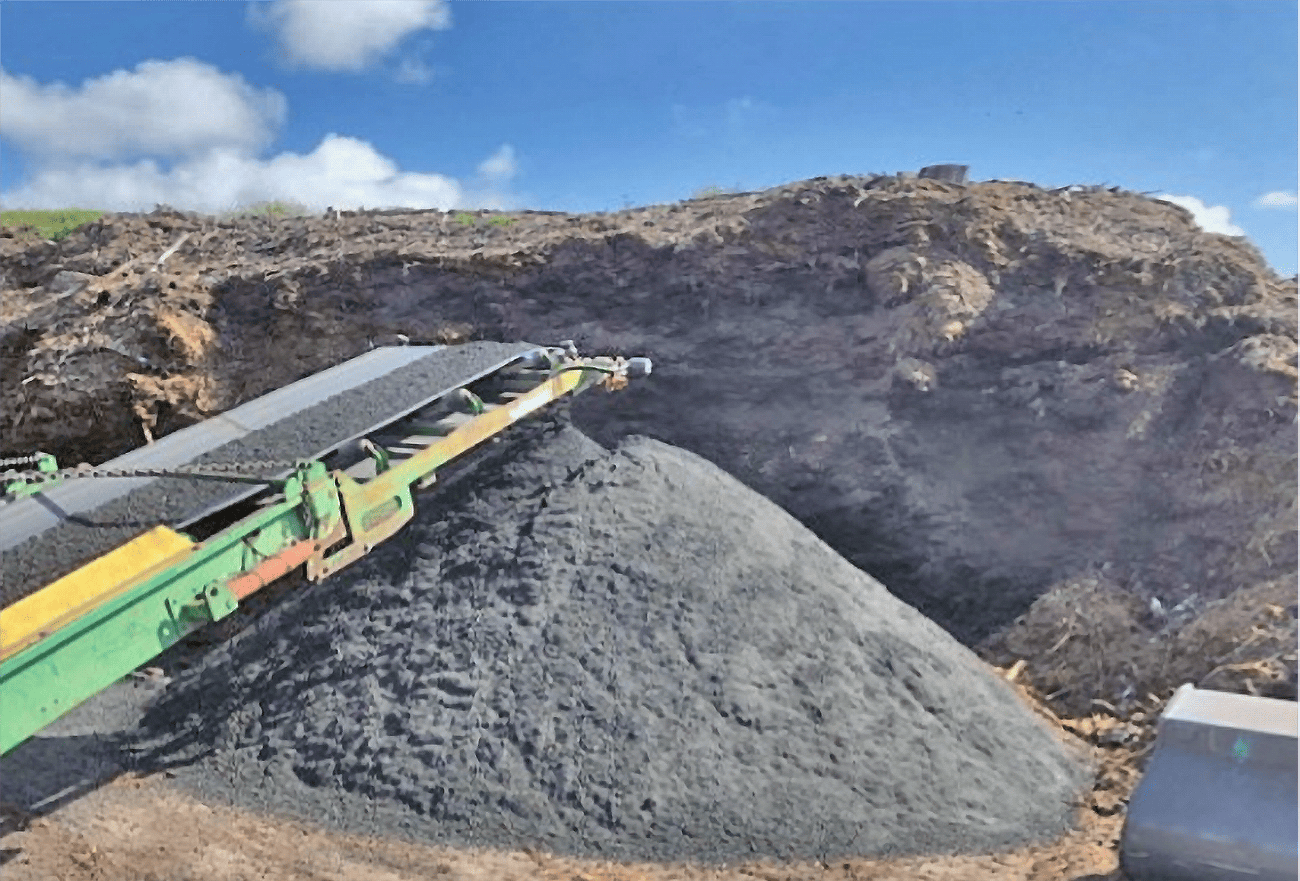Air Burners Recycles Wood Waste—Smarter, Cleaner, and Right Where You Need It
Wood waste is piling up across the country—on job sites, in forests, after storms, and during land clearing. We generate over 70 million tons of it every year in the U.S. alone. And while “recycling” sounds like the responsible choice, traditional wood recycling isn’t always the win it’s made out to be.
Between all the hauling, grinding, sorting, and processing, the system burns through fuel, time, and money—only to dump most of that wood right back into landfills or biomass burners.

At Air Burners, we do it differently.
We eliminate wood waste on-site—cleanly, quickly, and with less environmental impact. And we call that recycling. Because what we’re really doing is recovering value from wood that would otherwise be wasted—turning it into heat, power, and even carbon-sequestering biochar.
The Problem with “Traditional” Wood Recycling
It’s Expensive and Inefficient
Let’s be honest: traditional recycling often costs more than it’s worth.
You need trucks, fuel, permits, and labor just to haul the material.
You spend more to grind and screen it.
And in the end, most of it still gets tossed or burned elsewhere.
All that effort—for a tiny return.

Strong Market for Recycled Wood
Unlike metal or plastic, recycled wood has limited demand. Most of it is too dirty, damaged, or inconsistent to repurpose. Even when it is reused, the market is weak—and the value is low.
The Carbon Footprint Can Be Worse
From the first truckload, emissions start climbing:
Diesel engines for hauling
Diesel machines for processing
Methane release from landfill disposal
Ironically, the process meant to reduce waste and emissions often creates more of both.

Air Burners: A Better Way to Recycle Wood Waste
Our approach is simple: keep the wood where it is, eliminate it on-site, and recover as much value from it as possible.
With our patented air curtain burners—like the CharBoss, BurnBoss, and BioCharger—you can:
Eliminate waste without grinding or hauling
Dramatically cut smoke and emissions
Create clean electricity (with the BioCharger)
Produce biochar that improves soil and locks away carbon
This isn’t theoretical—it’s field-proven.
What We Mean by “Recycling”
We may not be shredding pallets into mulch, but we are recycling. Here’s how:
On-site waste removal = no long-distance hauling
Biochar production = carbon capture and soil improvement
Waste-to-energy (via BioCharger) = clean, localized power
Cleaner air = fewer particulates, no uncontrolled burns
In short, we’re turning waste into something useful—without the middle steps that waste time, money, and fuel.
Who’s Using Air Burners?
If you manage land or operations that produce wood debris, this is for you.
Forestry & Land Clearing: Eliminate slash piles, reduce fire risk, improve forest health
Construction & Demolition: Handle wood debris on-site without costly removal
Agriculture: Convert trimmings into biochar for more resilient fields
Disaster Recovery: Get up and running fast after hurricanes, floods, or fires
Cities & Counties: Reduce landfill pressure and improve local air quality

Why Biochar Is a Game Changer
Biochar is a stable, carbon-rich material left over after high-efficiency burning. It’s packed with benefits:
Sequesters carbon in soil for centuries
Boosts soil health and water retention
Helps reduce fertilizer use
Qualifies for many climate-smart land management programs
It’s one of the few tools that helps you reduce emissions while improving land performance.
Bottom Line: Wood Waste Recycling Needs to Catch Up
The old model of grinding, trucking, and hoping for resale value isn’t cutting it anymore.
Air Burners gives you a cleaner, faster, smarter alternative.
We bring the solution to you—no hauling, no processing centers, no wasted effort. Just practical, scalable tech that turns waste into real environmental value.
Let’s stop managing wood waste like it’s 1995.
See what Air Burners can do for your land, your crew, and your bottom line.
Visit airburners.com to learn more or talk with our team.
